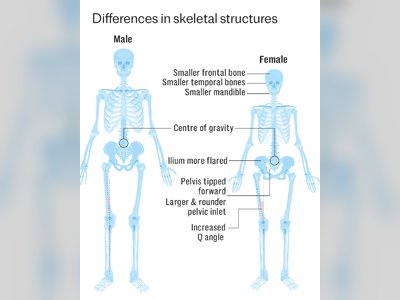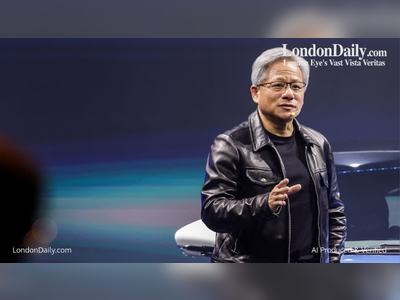UK Labour Peer Warns of Emerging ‘Constituency for Hating Jews’ in Britain
Lord Maurice Glasman says working-class Britain stands as the last bulwark against antisemitism amid changing political culture
Lord , a leading figure in the Labour Party and founder of the Blue Labour movement, has cautioned that Britain may now harbour a “constituency for hating Jews,” driven by a combination of progressive politics and high levels of migration.
Drawing on the aftermath of the youth-ministering of the synagogue massacre in Manchester, Glasman described the episode as “a potential horror of the future” and said it marked a turning point in British Jewish history.
Glasman reflected on how, until now, the UK had largely avoided the kind of antisemitic violence seen elsewhere in Europe.
He said he grew up cherishing a Britain “where we could live a full Jewish life,” with traditions of patriotism and liberty that suited the Jewish community.
But he raised alarm that decades of political elite faith in mass migration and progressive multiculturalism failed to recognise that large-scale migration could erode the civic cohesion that once protected minority communities.
He singled out what he described as the “growing coalition” binding Islamist groups, academics and public-sector unions who, in his view, promote antisemitic narratives under the guise of anti-colonial critique and progressive solidarity.
That, he argues, has helped create a political culture in which Jews feel less secure.
He contends that the working-class communities of Britain — those who “beat the Nazis” and preserved British Jewish life — remain the strongest guardians of Jewish safety and civility.
Within his party, Glasman’s views have long been contentious: he opposes the orthodox left’s embrace of mass migration and has called for profound reform of universities and immigration policy to safeguard national identity and social harmony.
He said that mass migration, unchecked by assimilation or civic culture, has contributed to rising violence and hostility towards Jews.
He also addressed how progressive academic culture has, in his view, fostered antisemitic ideas by re-framing Jews as “oppressors” and Israel as the exemplar of colonial power, pushing aside the traditional working-class alliance that once supported both Labour and British Jews.
In his words, the university sector now plays a central role in spreading “disinformation and misinformation” around Israel’s conflicts and Jewish life.
On solutions, Glasman emphasised alliance-building across faiths and social classes, highlighting the role of Muslim-Jewish cooperation and the importance of reclaiming working-class values of service, loyalty and patriotism.
He praised the UK Home Secretary, Shabana Mahmood, for her stance against extremism and called on the Labour Party to listen to its traditional base — the left behind, the patriotic, working-class Britons who once formed the “bulwark” against antisemitism.
Though many Jewish communal organisations focus on institutional advocacy, Glasman’s warning is ideological: he believes the next fight against antisemitism must be fought in the streets, the schools and the workplaces of Britain, not just in boardrooms.
He insists that the country’s ability to protect Jewish life rests not on laws alone, but on a public culture that values civility, identity and shared national loyalty.
Glasman’s remarks arrive amid broader concerns over rising antisemitic incidents in the UK and growing tensions around migration, social integration and national identity — issues that cut across political platforms and generations.
Drawing on the aftermath of the youth-ministering of the synagogue massacre in Manchester, Glasman described the episode as “a potential horror of the future” and said it marked a turning point in British Jewish history.
Glasman reflected on how, until now, the UK had largely avoided the kind of antisemitic violence seen elsewhere in Europe.
He said he grew up cherishing a Britain “where we could live a full Jewish life,” with traditions of patriotism and liberty that suited the Jewish community.
But he raised alarm that decades of political elite faith in mass migration and progressive multiculturalism failed to recognise that large-scale migration could erode the civic cohesion that once protected minority communities.
He singled out what he described as the “growing coalition” binding Islamist groups, academics and public-sector unions who, in his view, promote antisemitic narratives under the guise of anti-colonial critique and progressive solidarity.
That, he argues, has helped create a political culture in which Jews feel less secure.
He contends that the working-class communities of Britain — those who “beat the Nazis” and preserved British Jewish life — remain the strongest guardians of Jewish safety and civility.
Within his party, Glasman’s views have long been contentious: he opposes the orthodox left’s embrace of mass migration and has called for profound reform of universities and immigration policy to safeguard national identity and social harmony.
He said that mass migration, unchecked by assimilation or civic culture, has contributed to rising violence and hostility towards Jews.
He also addressed how progressive academic culture has, in his view, fostered antisemitic ideas by re-framing Jews as “oppressors” and Israel as the exemplar of colonial power, pushing aside the traditional working-class alliance that once supported both Labour and British Jews.
In his words, the university sector now plays a central role in spreading “disinformation and misinformation” around Israel’s conflicts and Jewish life.
On solutions, Glasman emphasised alliance-building across faiths and social classes, highlighting the role of Muslim-Jewish cooperation and the importance of reclaiming working-class values of service, loyalty and patriotism.
He praised the UK Home Secretary, Shabana Mahmood, for her stance against extremism and called on the Labour Party to listen to its traditional base — the left behind, the patriotic, working-class Britons who once formed the “bulwark” against antisemitism.
Though many Jewish communal organisations focus on institutional advocacy, Glasman’s warning is ideological: he believes the next fight against antisemitism must be fought in the streets, the schools and the workplaces of Britain, not just in boardrooms.
He insists that the country’s ability to protect Jewish life rests not on laws alone, but on a public culture that values civility, identity and shared national loyalty.
Glasman’s remarks arrive amid broader concerns over rising antisemitic incidents in the UK and growing tensions around migration, social integration and national identity — issues that cut across political platforms and generations.











